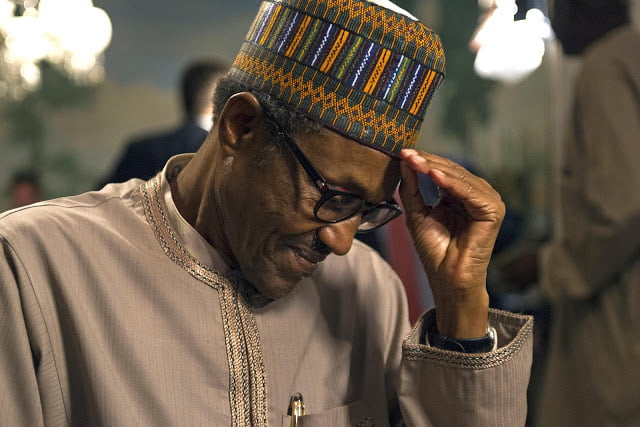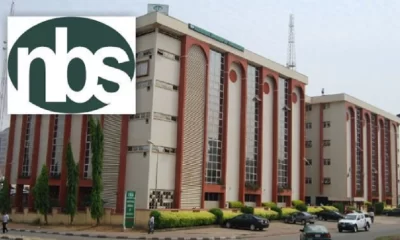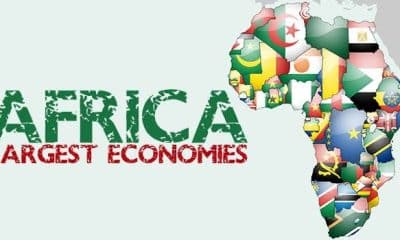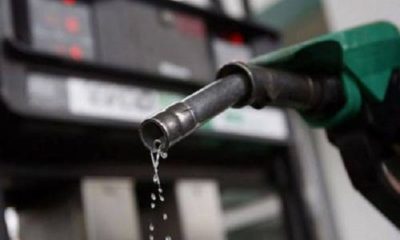Business
Nigeria Spends 86% Revenue On Debt Servicing Under Buhari, South Africa Spends Only 20% In Same Year

Financial analysts have described Nigeria’s debt servicing as outrageous and a setback to the country’s economic status among its African counterparts.
Findings have revealed that the country spent 86 per cent of its revenue on servicing debt last year.
While Nigeria managed to survive the year with 14% of the remaining revenue, South Africa only spent only 20 per cent of its own revenue on the same purpose in the year under review, Naija News understands.
According to the International Monetary Fund’s 2021 Article IV estimates, Africa’s most populous nation spent 85.5 per cent of its revenue on servicing the debt in 2021.
On the contrary, South Africa’s budget office, situated in the National Treasury, estimated its debt service-to-revenue in 2021 at 20 per cent.
It explained that for every five rands raised by the government, only one rand was spent on servicing debt.
Nigeria’s total debt by end of December 2021 was only 30 per cent of South Africa’s debt, yet the former’s debt service appears too expensive, according to analysts.
Nigeria’s total debt as of December 2021 was $94.166bn, according to the Debt Management Office, but South Africa’s total debt in the same period was $261bn, according to the country’s National Treasury and Bloomberg.
Nigeria is the continent’s largest economy. Latest estimates by the National Bureau of Statistics put the nation’s economic size at $420bn. On the other hand, South Africa is the second-largest economy on the continent with an estimated size of $320bn, Naija News understands.
Speaking on why Nigeria’s debt service is very expensive, financial experts revealed that the country is caught in the trap because investors categorized Nigeria as high risk.
Speaking from his well of knowledge about the country’s economic status, the Chief Executive Officer of the Centre for the Promotion of Private Enterprise, CPPE, Dr Muda Yusuf, said that the debt service ratio was a function of the magnitude of the debt and its cost.
“If the amount you are borrowing is high, you also have to pay more. Also, Nigeria borrows at expensive rates, especially the Eurobonds. Sometimes, we celebrate that our Eurobondsare oversubscribed, but the yields are very high when you compare them with other countries,” Yusuf said.
He explained that investors perceived Nigeria as high-risk, explaining that a risk premium must be paid when bonds were perceived as high-risk.
Providing possible ways of managing the country’s economy, a market analyst, Ike Ibeabuchi, suggested that Nigeria must pay more attention to cost-cutting measures.
He believes that reducing the earnings of the legislature will do the country more good, adding that the country should look at ways of tapping equity rather than debt.
Findings have shown that Egypt’s debt service-to-revenue was 20.5 per cent in 2021, according to its central bank, while Kenya’s and Uganda’s were estimated at 60 per cent and 27-30 per cent respectively.
Another major reason for Nigeria’s high debt service-to-revenue is its low revenue generation.
According to the PUNCH, analysts are worried that Nigeria is not raising enough revenue from an economic size of over $400 billion, wondering why policymakers are not thinking out of the box.
It is worthy to note that Nigeria’s revenue to GDP is nine per cent, while Ghana’s is 13 per cent. Meanwhile, Nigeria is seven times Ghana’s population of 31 million.
According to the DMO, Kenya and Angola have a revenue-to-GDP ratio of 16.6 per cent, and 20.9 per cent respectively.
“We are likely to have a higher debt service-to-revenue ratio if revenue levels do not increase significantly,” said President of Lagos Chamber of Commerce and Industry, Michael Olawale-Cole, at a press conference in April.
Cole suggested that the Federal Government must improve its tax collection by expanding the tax net to reduce dependence on oil revenues and exposure to global shocks like the war in Ukraine.
A PricewaterhouseCoopers’ research has suggested that Nigeria must convert its dead assets into liquid ones.
Partner & Chief Economist, PwC Nigeria, Andrew S. Nevin, recently explained that Nigeria had $900 billion worth of dead assets in residential, real estate and agricultural land that must be revivified and converted into liquid assets.
The Director-General of Lagos Chamber of Commerce and Industry, Chinyere Almona, in a recent statement, said Nigeria must identify corporate, physical, intangible, and human assets, determine their worth and make plans to repurpose or redevelop idle ones.
Almona stressed the need to break government monopoly in the infrastructure sector (railway, pipelines, power transmission) to attract investors to commit equity funds to them.












